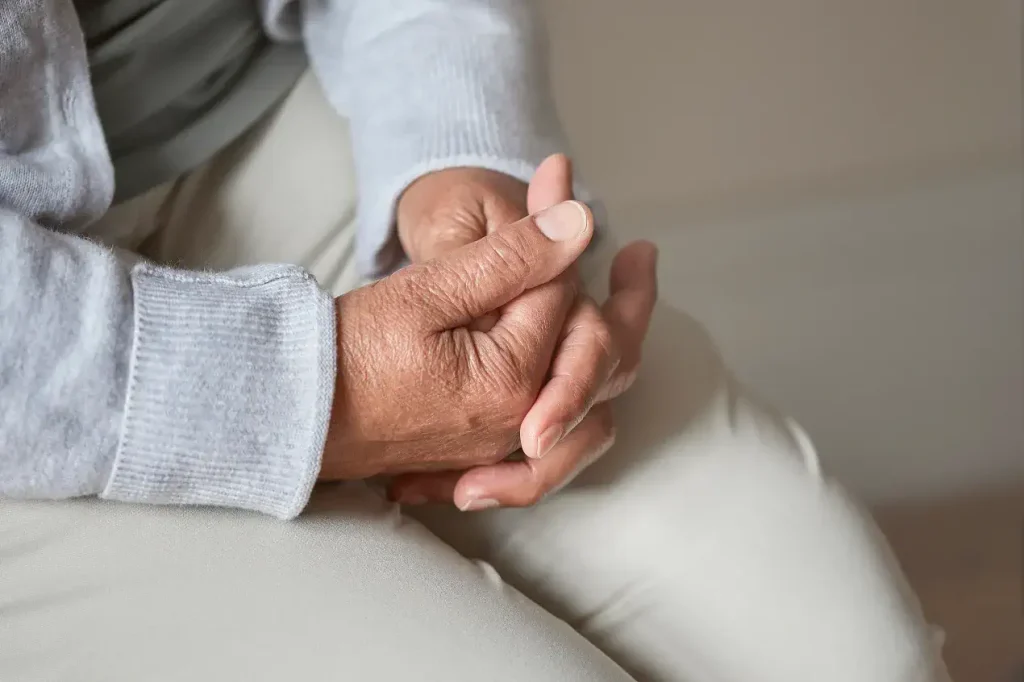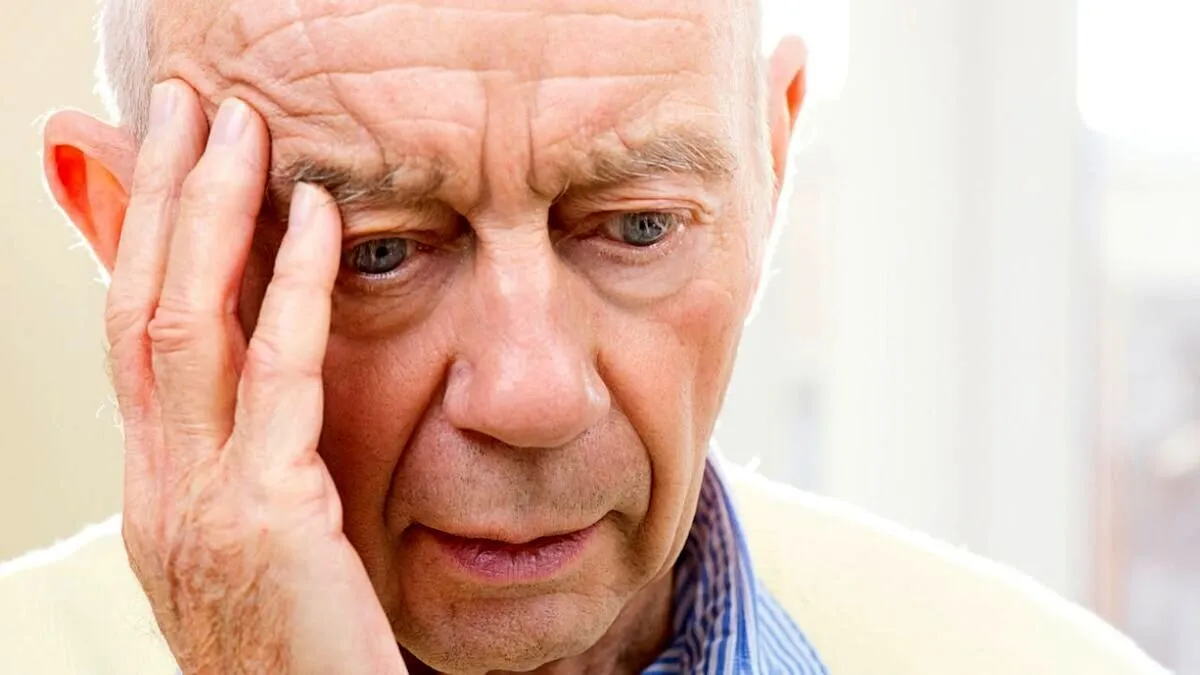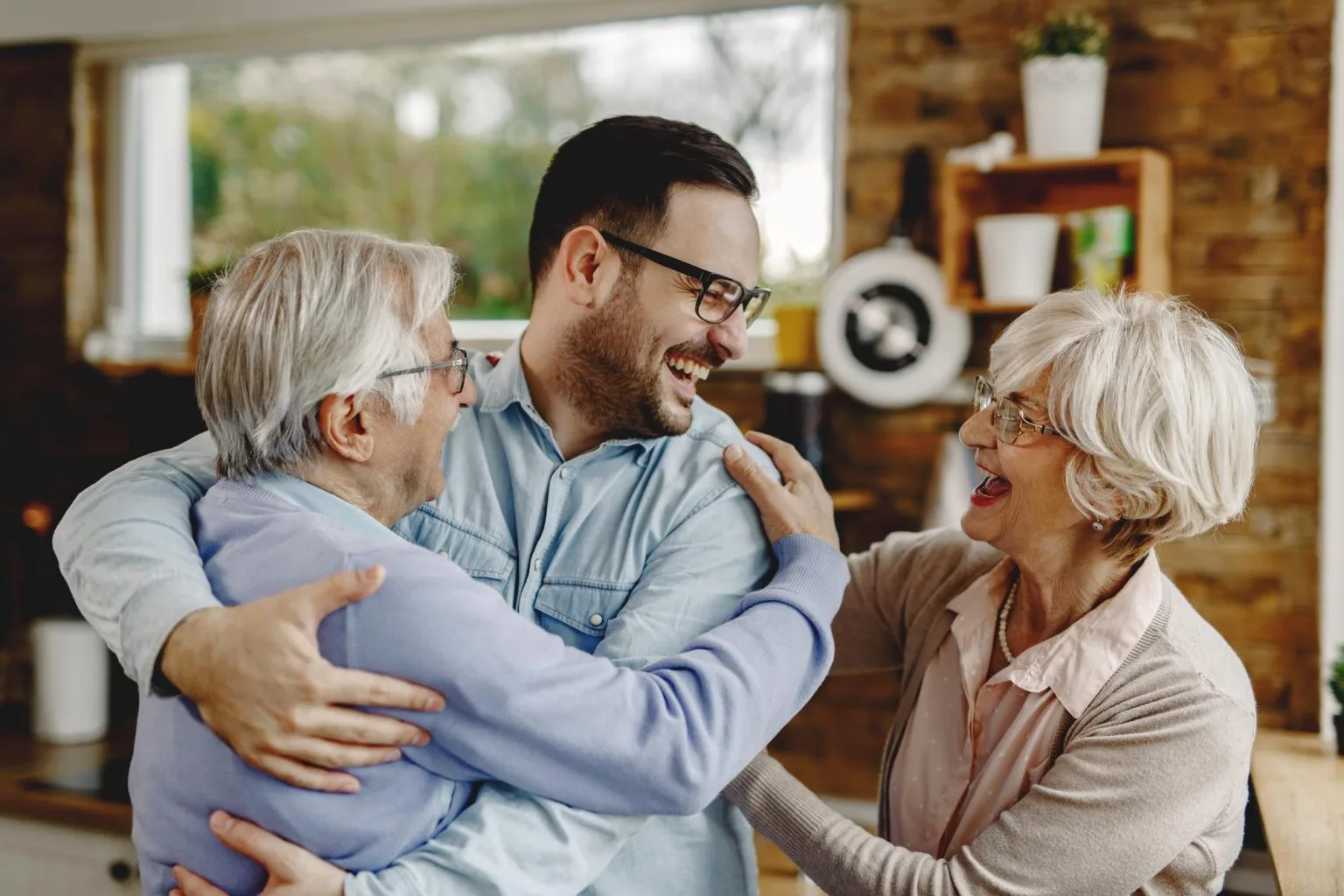
Managing Anxiety in Seniors: Top 10 Effective Strategies
Anxiety is actually one of the issues that can always occur at all ages due to various factors, causing problems for people. As you know, persistent anxiety can often lay the groundwork for numerous difficulties. Furthermore, managing anxiety in seniors is often crucial and important, as they may experience anxiety for various reasons such as the loss of a spouse, illness, financial problems, and various diseases, which can be a very serious and significant issue for them.
In fact, stress is not necessarily dangerous and is certainly a common companion in modern life. However, when an individual’s stress level becomes excessive and persists intensely for a prolonged period, it can gradually lead to vulnerability, disability, and frailty in older adults. But how is managing anxiety in older adults done, and how can stress be controlled during this stage of life? Keep reading this stress management guide for seniors in humanhealthmag.
What to Know About Anxiety in Seniors?
Anxiety in seniors is a condition that becomes more common with increasing age. Anxiety is a normal and natural emotion, and it is one of the brain’s natural responses to stress, preparing an individual to respond appropriately to potential dangers. However, excessive anxiety that disrupts the daily activities of older adults is not a natural occurrence in the aging process and can lead to many health problems, significantly reducing their quality of life.
Between 3 and 14 percent of older adults may suffer from anxiety disorders. Recent studies have reported that over 27 percent of older adults in 24-hour care facilities show these symptoms. Additionally, according to health reports from the United States, 2 million out of 34 million Americans over the age of 65 suffer from depression and anxiety disorders.
What Are the Causes of Stress in the Elderly?
Before understanding methods of managing anxiety in seniors, a common question that older adults and younger individuals ask their psychologists is: what is the main reason seniors experience stress? Firstly, when individuals reach retirement age. Because in some countries the retirement process is not properly implemented, and individuals are not given training on how to adapt to retirement, this itself can cause stress. While retirement is a period full of opportunities.

The next reason that can increase stress in older people is the decrease in income during this period, which can lead to serious financial stress. Chronic illnesses that individuals face during retirement can cause physical, mental, and psychological pressure. A portion of older adults live alone; it can be said that approximately 30 percent of older individuals have lost their spouses and are forced to live alone, which can be stressful.
Caring for an older adult during retirement is also stressful. Our advice to you, dear ones, is that when you have to care for a sick person, be sure to pay attention to yourself and your own needs, and do not allow prolonged and intense stress to make you vulnerable. In some older adults, it has been observed that grandchildren are kept with their grandparents excessively, without regard for the grandparents’ abilities. This issue can help control stress to some extent, but when it exceeds its appropriate limit, it gradually causes problems for individuals.
In any case, worries about death, the future, lack of planning, and aimlessness in life can all contribute to stress during old age.
Here Are 10 Ways for Managing Anxiety Feelings in Seniors
Generally, anxiety and stress resulting from various factors can be managed by using certain measures. As mentioned, stress and anxiety in older adults can often pave the way for various problems and illnesses for them.
The best and most effective management for anxiety disorders in seniors includes medication and counseling. Of course, some patients respond to only one of these treatments. An experienced specialist and counselor will assess the patient’s symptoms and suggest the best treatment for them.
Sometimes, the use of Cognitive Behavioral Therapy (CBT) is a good treatment for anxiety in older adults. In this method, the individual learns to transform their negative and unpleasant feelings into positive ones. During CBT, he/she learns ways to cope with stress in anxiety-provoking situations. And sometimes group counseling with family members can have significant effects on the anxiety treatment process in older adults.

Seniors and caregivers play an important role in managing anxiety in seniors and treatment of their illness. By doing the following, they can take a positive step towards improving their condition. For example, be a good listener when talking to older adults, as this helps reduce their anxiety levels. If a senior cannot physically attend a counselor’s office, use online counseling or a personal counselor at home to receive immediate treatment through regular counseling sessions.
Healthy recreation for seniors, such as group activities, participating in group sports in parks, or collective prayer, etc., increases positive feelings and reduces the symptoms of the anxiety in seniors.
Deep breathing is a great way to manage the physical symptoms of stress. When seniors breathe deeply, they get more carbon dioxide in his/her blood, which can calm the parts of the brain that cause anxiety. Deep breathing also activates the parasympathetic nervous system, helping he/she relax and feel comfortable.
Practicing mindfulness for a few minutes each day can have a significant impact on senior overall stress and anxiety levels. Mindfulness is a state of complete focus on the present moment without worrying about the past or the future. When you practice mindfulness, you notice your thoughts and feelings without judgment. If a disturbing thought comes to mind, try to accept it without dwelling on it.
Never leave older adults alone during treatment. Feelings of loneliness and lack of support are among the reasons that lead to bad thoughts and increased anxiety in older adults.
Proper nutrition is essential for our mental and physical health. Food provides energy to the brain, so consuming an appropriate and balanced intake of protein, healthy fats, and carbohydrates helps you cope with anxious thoughts. Make sure your senior consumes a variety of healthy foods and their favorite snacks at each meal.
Avoid caffeinated foods. This is because caffeine causes mood swings in older adults and can increase stress symptoms. For example, coffee, tea, energy drinks, and chocolate can contain high amounts of caffeine.
Writing daily notes in a journal right before bed helps improve the quality of sleep for seniors, preventing the obstacles and intrusive thoughts of the previous day from occupying their minds during sleep.
Managing Anxiety in Seniors: A Guide for Loved Ones and Caregivers
Every day we witness children growing up and older adults aging; this is the law of life that constantly repeats itself. Let’s see how people around seniors (family member, friends, or caregiver) should behave to manage stress and anxiety in seniors. Family counseling experts offer tips to prevent sadness and grief in the hearts of older adults, such as grandparents and family elders.
Joking About the Past of Seniors is Forbidden
Excessive stress and anxiety affect the behavior of older adults and endanger their health. As they age, due to the mental and physical changes that occur over many years, seniors have different conditions compared to middle-aged and young adults. This is the nature of human evolution. It is possible that a man who was once fearless now lives cautiously. It is best not to bring up important topics about a senior’s past unless they initiate the conversation, as it can sometimes upset them.
Do Not Show Your Pity
A famous proverb says, “What we see in the mirror, old men see in raw brick.” For this reason, they often do not speak and become stressed. In these situations, when we see their silence, our hearts ache, and we feel pity for them. We must understand that older adults have more social intelligence and may be smarter than us, and they better understand the difference between respect and charity. Make sure there is no sign of pity in your behavior, otherwise you will surely break their heart.

Gather Around the Senior with Family
When elderly parents or grandparents are sick, we should contact other siblings. Perhaps one relative is so compassionate that they take on the personal tasks of the seniors. Unnecessary interventions sometimes have the opposite effect and reduce their self-confidence.
Do Not Neglect
One of the most common forms of elder mistreatment that causes stress is neglect. The result of such behavior creates the conditions for incidents such as malnutrition, depression in older adults, stress, leaving seniors alone at home, etc. Therefore, situations should not arise where seniors feel neglected.
Do Not Take Away Their Financial Independence
Using the financial resources and personal belongings of seniors for your own use, as well as family members’ lack of attention to the financial needs of seniors and not meeting their daily needs, are examples of financial abuse of the elderly. Naturally, some individuals face financial difficulties in old age and perform poorly financially.
Avoiding Stressful Factors
As much as possible, children should avoid involving their elderly parents in their personal problems. On the other hand, children should not use daily busyness as an excuse to neglect their parents. Even a short phone call during the day can have a significant impact on reducing feelings of loneliness and anxiety in older adults.
Seeking Help and Interacting with Others
Many older adults try to solve their problems alone so as not to worry those around them, but in stressful situations, it is recommended that they seek help from family members or friends. Social interaction is a key factor in reducing anxiety.
Getting Out of Stressful Environments and Increasing Positive Activities
Constantly watching negative news, spending long hours on social media, and social isolation can exacerbate stress. In contrast, improving socialization for elderly, walking in the park, visiting shopping centers, participating in educational and art classes, and engaging in enjoyable activities have a positive impact on the mental health of older adults.
Do not forget that older adults are as fragile as glass and break with the slightest inappropriate behavior, resulting in feelings of sadness and depression, anger, and restlessness. So, let us supporting elderly with depression and remember not to do anything that would make our parents upset and heartbroken by their children.
Concluding Remarks
Anxiety is an important part of modern life, and all age groups are affected by it. Older adults are considered one of the most vulnerable groups to anxiety.
Old age comes with its own unique challenges. If this condition is not diagnosed and treated in time, it can lead to many problems in the daily lives of older adults. The role of family, strengthening resilience, stress management, and engaging in social and physical activities are very important in this process.
By using the strategies of managing anxiety in seniors mentioned in the article above, it is possible to significantly help control and treat anxiety in seniors. By choosing caregiver for elderly parents, our dear seniors can benefit from nursing and care services in the comfort of their own homes. Studies have shown that seniors who are cared for at home are more self-reliant than those in nursing homes.

Frequently Asked Questions
How can family members and caregivers best support a senior loved one who is struggling with anxiety?
Family and caregivers play a crucial supportive role. Being patient and understanding, actively listening to their concerns, and creating a calm and predictable environment are essential. Encouraging social engagement, facilitating participation in enjoyable activities, and helping them access professional help when needed are also vital ways family and caregivers can positively impact a senior’s anxiety levels.
What are some non-medication strategies that can be effective in managing anxiety for seniors?
Several lifestyle modifications can make a significant difference. Regular gentle brain exercises for elderly, maintaining a healthy and balanced diet, ensuring sufficient sleep, and practicing relaxation techniques like deep breathing or mindfulness can all help reduce anxiety symptoms. Limiting exposure to negative news and caffeine can also be beneficial for managing anxiety in older adults.
